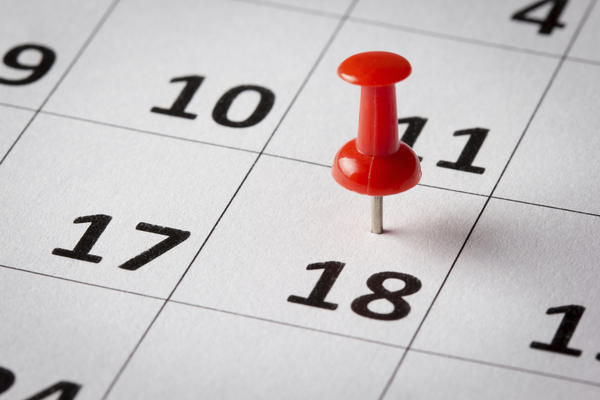It can be scary for a woman when her period is late, be it a day, two days, or a week. This worry is further exacerbated if said woman is sexual active. If you are thinking, why am I 6 days late on my period? Then continue reading to discover reasons as to why this can happen.
Why Am I 6 Days Late on My Period?
When you have a late period, you need to run a home pregnancy test to confirm whether you are pregnant or not. Once it’s established that you have a late period but aren’t not pregnant, it’s time to figure out what other reasons may be causing your late period.
Non-Pregnancy Causes
 Your menstrual cycle can be a delicate flower. There are many factors that can throw the timing of your period out of whack. In many cases, your physician will tell you not to worry about having a late period, or a missed period once or twice a year. You may suffer from random periods of poor eating habits, high levels of stress, vigorous exercise, hormonal imbalance, thyroid disease and etc. Even the travelling and jetlag could delay or affect your period.
Your menstrual cycle can be a delicate flower. There are many factors that can throw the timing of your period out of whack. In many cases, your physician will tell you not to worry about having a late period, or a missed period once or twice a year. You may suffer from random periods of poor eating habits, high levels of stress, vigorous exercise, hormonal imbalance, thyroid disease and etc. Even the travelling and jetlag could delay or affect your period.
Pregnancy
Pregnancy is the most possible reason for late period for those who are sexually active. When you are pregnant, the hormones which regulate and support the health growth of the fetus will shut off the regular cycle of menstruation. This means that you will have no more periods until after your baby has been born.
How Soon Can I Take a Pregnancy Test After a Missed Period?
Some brands of home pregnancy tests claim to be able to determine whether impregnation has occurred on the day of your missed period. That being said, it is most advisable to wait around a week after your missed period before performing a home pregnancy test. This will ensure the most accurate result possible, and avoid any confusion.
Pregnancy tests look for a hormone called human chorionic gonadotropin (HCG), which is only produced once a fertilized egg becomes implanted within the uterine wall. On average, this happens around six days after conception, although this can vary, and can happen much later for some women.
The efficiency and reliability of a home pregnancy test depend on when you take the test, how you use the test, and the brand of test you use. As mentioned, it is best to wait six days after your missed period before performing a test, as to allow levels of HCG to rise within the body. To ensure you carry out the test properly, ensure to follow the manufacturers’ instructions.
Pregnancy tests are very accurate if implemented correctly and under the right conditions. Many things, including the duration of time you wait to check the results, can lead to an error. For further clarification, pay a visit to your doctor and ask for a blood test. This remains the best way to check for impregnation.
Watch the video below to learn more on pregnancy test:
What Other People Say About Home Tests:
Wait a few weeks then pay a visit to the doctor if there is still some uncertainty. Although home pregnancy tests are a great indication as to whether a woman is pregnant, a blood test will give a much clearer indication.
A visit to the doctor would be most advised. It is best to wait until the time the next period is due before visiting the doctor. If that period too does not begin, pay a visit to a health care professional for a blood test.
Both urine, and blood tests, can be ineffective. On some rare occasions, both tests can return negative results when a person is in fact impregnated.
Early Signs of Pregnancy
Symptoms of pregnancy can ensue a few weeks after conception has occurred. Ten common signs of pregnancy are listed below:
- Food aversions
- Mood swings
- Bloating in abdomen
- Increased urination
- Fatigue
- Swollen, tender breasts
- Nausea/morning sickness
- Missed period
- High basal body temperature
- positive pregnancy test
One or more of these signs can be an indication of impregnation.
How Can I Take Care of Myself if I’m Not Pregnant But I’m 6 Days Late on My Period?
There are numerous things you can do to ensure proper menstrual health. These include:
1. Charting Your Period
Make a note on a calendar when each of your periods starts and stops. This will help you and your healthcare provider to determine any abnormalities.
2. Eating Healthy Foods
Eating healthy foods will ensure your body receives the nutrients required for optimum functionality, as well as ensure that your weight remains at a healthy level.
3. Lightening Your Exercise program
Cutting back on your exertion during your exercise routine, or reducing the amount of time you exercise, can help to restore your natural menstrual cycle.
4. Talking to Your Doctor
Paying a visit to your doctor will help you properly determine the cause for your late period. If you have kept a record of your menstrual activity, then this can be discussed with your doctor to establish whether there are any abnormalities.
